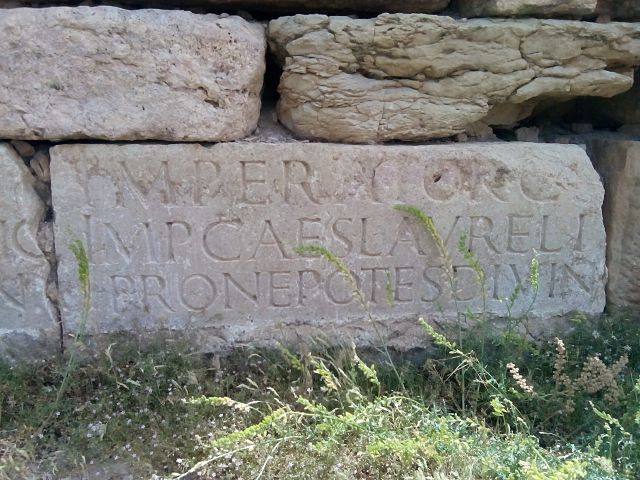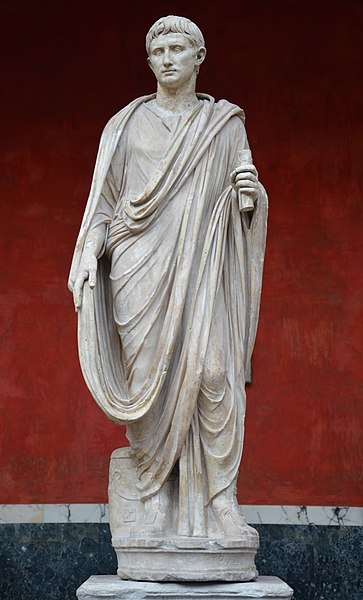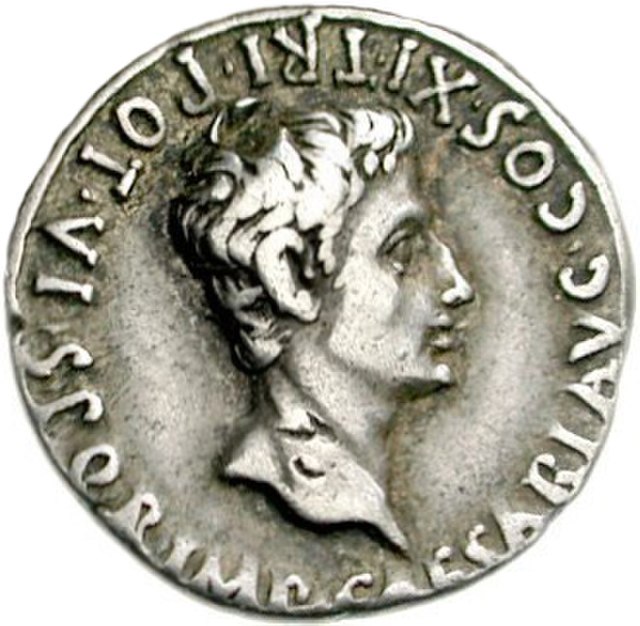The title of imperator originally meant the rough equivalent of commander under the Roman Republic. Later, it became a part of the titulature of the Roman Emperors as their praenomen. The Roman emperors themselves generally based their authority on multiple titles and positions, rather than preferring any single title. Nevertheless, imperator was used relatively consistently as an element of a Roman ruler's title throughout the Principate and the Dominate. The word itself derives from the stem of the verb imperare, meaning 'to order, to command'. The English word emperor derives from imperator via Old French: Empereür.
Carving in Diana Veteranorum referring to Lucius Verus as Imperator
The Roman emperor was the ruler and monarchical head of state of the Roman Empire, starting with the granting of the title augustus to Octavian in 27 BC. The term "emperor" is a modern convention, and did not exist as such during the Empire. Often when a given Roman is described as becoming emperor in English, it reflects his taking of the title augustus and later basileus. Another title used was imperator, originally a military honorific, and caesar, originally a surname. Early emperors also used the title princeps alongside other Republican titles, notably consul and pontifex maximus.
Bust of Augustus wearing the corona civica
Augustus depicted as a magistrate at the Ny Carlsberg Glyptotek
Cameo of Augustus in a quadriga drawn by tritons at the Kunsthistorisches Museum, Vienna
Denarius of Augustus (18 BC).





